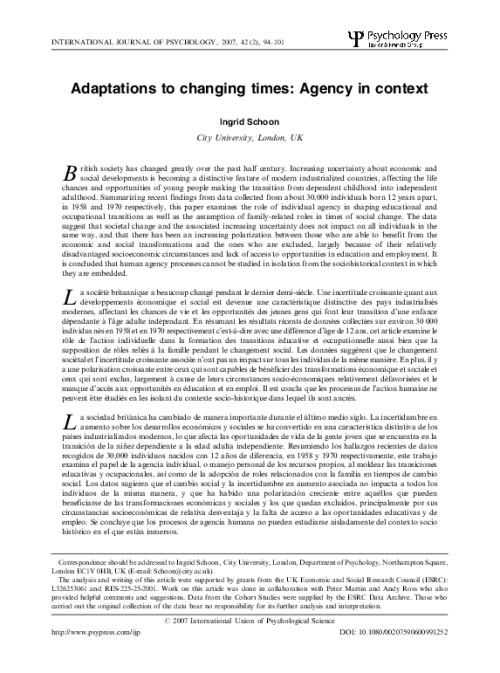British society has changed greatly over the past half century. Increasing uncertainty about economic and social developments is becoming a distinctive feature of modern industrialized countries, affecting the life chances and opportunities of young people making the transition from dependent childhood into independent adulthood. Summarizing recent findings from data collected from about 30,000 individuals born 12 years apart, in 1958 and 1970 respectively, this paper examines the role of individual agency in shaping educational and occupational transitions as well as the assumption of family-related roles in times of social change. The data suggest that societal change and the associated increasing uncertainty does not impact on all individuals in the same way, and that there has been an increasing polarization between those who are able to benefit from the economic and social transformations and the ones who are excluded, largely because of their relatively disadvantaged socioeconomic circumstances and lack of access to opportunities in education and employment. It is concluded that human agency processes cannot be studied in isolation from the sociohistorical context in which they are embedded.










